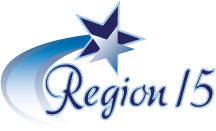-
Inclusion/ Resource
Statewide Special Ed Support Website
Instruction - Online Courses
Literacy for All! Designing Inclusive Literacy Learning Environments is designed to help educators understand the importance of teaching students who struggle to read on grade level in grades 4-12 foundational reading skills.
You will learn about the science of teaching reading, including an overview of what skills need to be mastered to become a proficient reader, how the brain learns to read, the characteristics of dyslexia and dysgraphia, how a student’s learning abilities associated with reading can impact a student’s ability to learn how to read, and what instruction and accommodations can remove barriers to learning.
Math for All! Designing Inclusive Mathematics Learning Environments—Whole Number Addition and Subtraction, Kindergarten-Grade 3 was developed by the Inclusion in Texas Network in collaboration with the Texas Education Agency. This course is designed to help educators build capacity in understanding how specific disabilities impact students’ learning of mathematics.
Working With and Supporting Paraprofessionals in the Special Education Classroom
In this course, Dr. Robert Pennington will take learners through the ins and outs of working with paraprofessionals in the classroom. This course covers the following 5 modules:
- Roles and Responsibilities
- Planning
- Training
- Inclusive Settings
- Building Relationship
Paraprofessionals
Working with Paraprofessionals The information addresses both general and special education settings. It does not include non-instructional responsibilities such as assisting in diapering, positioning, feeding, etc. This guide is a resource. It is not a strict set of “rules” that must be followed. The appropriate state and federal laws are included throughout this document. This document can serve as a starting point to spark conversations on a campus or within a district (LEA). During conversations, it is important to communicate that supports provided to students who receive special education services need to be individualized; and vary from student to student, setting-to- setting, and even within a class period, according to the type of instruction being delivered (whole group direct instruction, small group, reteach, etc.).
Working with Paraprofessionals Field User Guide
This field user guide includes paraprofessional's roles and responsibilities, the importance of clear communication, documentation practices, and virtual or a face-to-face classroom supports.
Co-Teaching
Guidelines for Co-Teaching in Texas
Co-teaching is intensive specially designed instruction embedded within full access to grade-level, rigorous general curriculum, leading to a reduced achievement gap. The purpose of this document is to help districts and schools establish a common understanding of co-teaching fundamentals, from conceptualization to implementation and evaluation, and to explain essential components of effective co-teaching programs.
Guidelines for Co-Teaching in Texas Field User Guide
This field user guide includes four sample lesson plans: 1st grade reading, 4th grade mathematics, 7th grade science, and 11th grade US. history. The purpose of the sample lessons is to show how the different co-teaching approaches can be used flexibly when designing instruction. The focus is not on the content of the lesson, but on how the instruction is delivered. Each lesson demonstrates a way the six co-teaching approaches can be used together.
Specially Designed Instruction
Specially Designed Instruction
This guide includes resources that help teachers understand, develop, implement, and evaluate the specially designed instruction (SDI) students with disabilities need to access and progress in the general curriculum. In addition, it clarifies concepts related to, but distinct from, specially designed instruction, including accommodations, modifications, and high-yield instructional strategies.
Specially Designed Instruction Field User Guides
The intent of this document is to provide information to teachers who deliver special education services to students with disabilities and participate in the preparation and implementation of Individualized Education Programs (IEPs).
Contact Information
Valerie Moos, Education Specialist - valerie.moos@esc15.netChristina Vasquez, Administrative Assistant - christina.vasquez@esc15.net


